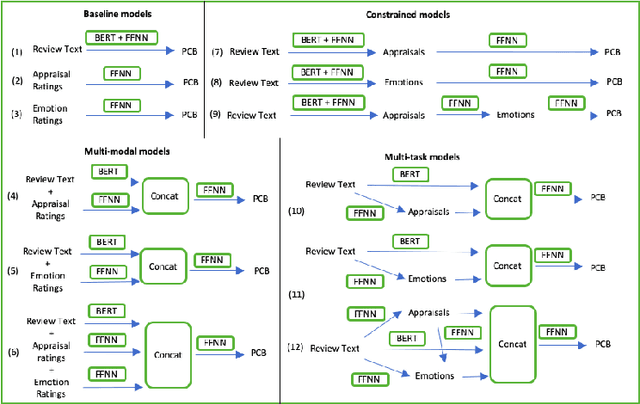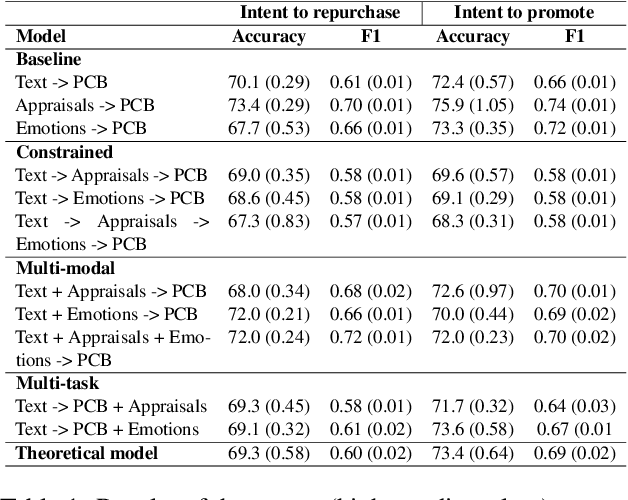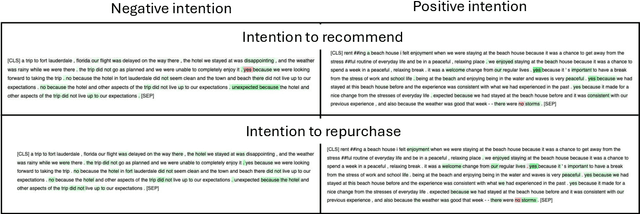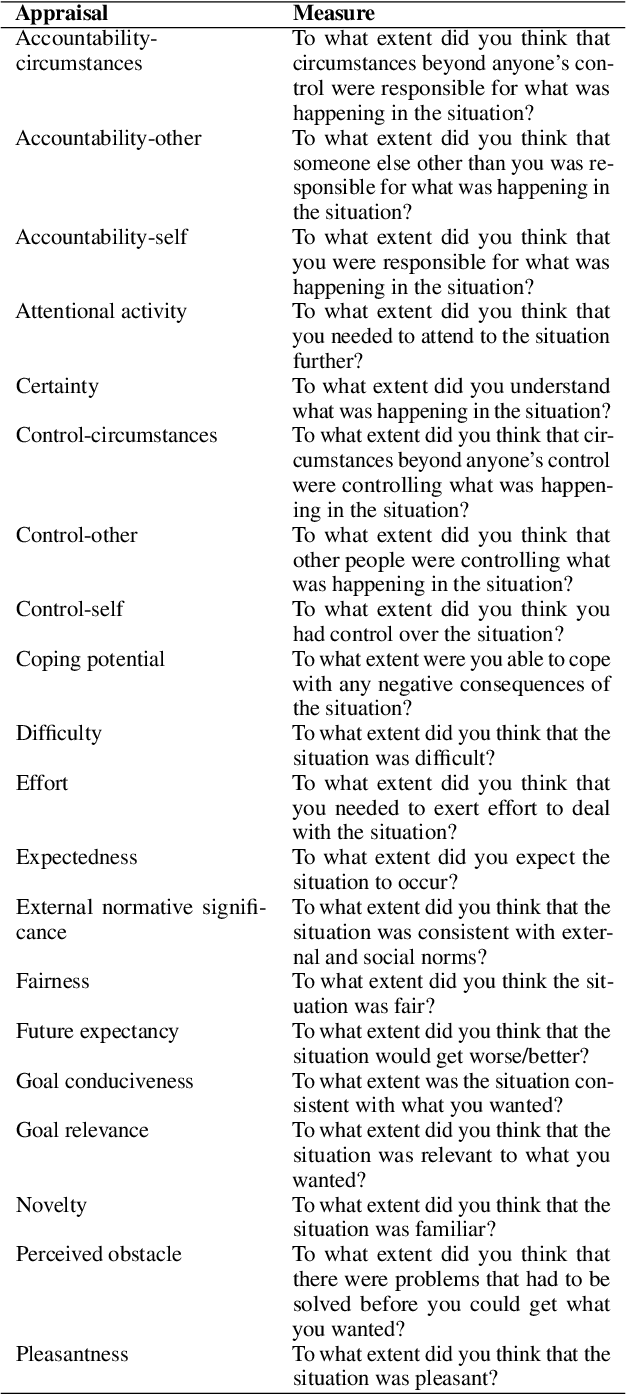Gerard Christopher Yeo
Learning Through Dialogue: Unpacking the Dynamics of Human-LLM Conversations on Political Issues
Jan 12, 2026Abstract:Large language models (LLMs) are increasingly used as conversational partners for learning, yet the interactional dynamics supporting users' learning and engagement are understudied. We analyze the linguistic and interactional features from both LLM and participant chats across 397 human-LLM conversations about socio-political issues to identify the mechanisms and conditions under which LLM explanations shape changes in political knowledge and confidence. Mediation analyses reveal that LLM explanatory richness partially supports confidence by fostering users' reflective insight, whereas its effect on knowledge gain operates entirely through users' cognitive engagement. Moderation analyses show that these effects are highly conditional and vary by political efficacy. Confidence gains depend on how high-efficacy users experience and resolve uncertainty. Knowledge gains depend on high-efficacy users' ability to leverage extended interaction, with longer conversations benefiting primarily reflective users. In summary, we find that learning from LLMs is an interactional achievement, not a uniform outcome of better explanations. The findings underscore the importance of aligning LLM explanatory behavior with users' engagement states to support effective learning in designing Human-AI interactive systems.
From Passive to Persuasive: Steering Emotional Nuance in Human-AI Negotiation
Nov 16, 2025Abstract:Large Language Models (LLMs) demonstrate increasing conversational fluency, yet instilling them with nuanced, human-like emotional expression remains a significant challenge. Current alignment techniques often address surface-level output or require extensive fine-tuning. This paper demonstrates that targeted activation engineering can steer LLaMA 3.1-8B to exhibit more human-like emotional nuances. We first employ attribution patching to identify causally influential components, to find a key intervention locus by observing activation patterns during diagnostic conversational tasks. We then derive emotional expression vectors from the difference in the activations generated by contrastive text pairs (positive vs. negative examples of target emotions). Applying these vectors to new conversational prompts significantly enhances emotional characteristics: steered responses show increased positive sentiment (e.g., joy, trust) and more frequent first-person pronoun usage, indicative of greater personal engagement. Our findings offer a precise and interpretable framework and new directions for the study of conversational AI.
Conversations: Love Them, Hate Them, Steer Them
May 23, 2025Abstract:Large Language Models (LLMs) demonstrate increasing conversational fluency, yet instilling them with nuanced, human-like emotional expression remains a significant challenge. Current alignment techniques often address surface-level output or require extensive fine-tuning. This paper demonstrates that targeted activation engineering can steer LLaMA 3.1-8B to exhibit more human-like emotional nuances. We first employ attribution patching to identify causally influential components, to find a key intervention locus by observing activation patterns during diagnostic conversational tasks. We then derive emotional expression vectors from the difference in the activations generated by contrastive text pairs (positive vs. negative examples of target emotions). Applying these vectors to new conversational prompts significantly enhances emotional characteristics: steered responses show increased positive sentiment (e.g., joy, trust) and more frequent first-person pronoun usage, indicative of greater personal engagement. Our findings offer a precise and interpretable method for controlling specific emotional attributes in LLMs, contributing to developing more aligned and empathetic conversational AI.
On the Limitations of Steering in Language Model Alignment
May 02, 2025Abstract:Steering vectors are a promising approach to aligning language model behavior at inference time. In this paper, we propose a framework to assess the limitations of steering vectors as alignment mechanisms. Using a framework of transformer hook interventions and antonym-based function vectors, we evaluate the role of prompt structure and context complexity in steering effectiveness. Our findings indicate that steering vectors are promising for specific alignment tasks, such as value alignment, but may not provide a robust foundation for general-purpose alignment in LLMs, particularly in complex scenarios. We establish a methodological foundation for future investigations into steering capabilities of reasoning models.
Beyond Text: Leveraging Multi-Task Learning and Cognitive Appraisal Theory for Post-Purchase Intention Analysis
Jul 11, 2024



Abstract:Supervised machine-learning models for predicting user behavior offer a challenging classification problem with lower average prediction performance scores than other text classification tasks. This study evaluates multi-task learning frameworks grounded in Cognitive Appraisal Theory to predict user behavior as a function of users' self-expression and psychological attributes. Our experiments show that users' language and traits improve predictions above and beyond models predicting only from text. Our findings highlight the importance of integrating psychological constructs into NLP to enhance the understanding and prediction of user actions. We close with a discussion of the implications for future applications of large language models for computational psychology.
PHAnToM: Personality Has An Effect on Theory-of-Mind Reasoning in Large Language Models
Mar 04, 2024



Abstract:Recent advances in large language models (LLMs) demonstrate that their capabilities are comparable, or even superior, to humans in many tasks in natural language processing. Despite this progress, LLMs are still inadequate at social-cognitive reasoning, which humans are naturally good at. Drawing inspiration from psychological research on the links between certain personality traits and Theory-of-Mind (ToM) reasoning, and from prompt engineering research on the hyper-sensitivity of prompts in affecting LLMs capabilities, this study investigates how inducing personalities in LLMs using prompts affects their ToM reasoning capabilities. Our findings show that certain induced personalities can significantly affect the LLMs' reasoning capabilities in three different ToM tasks. In particular, traits from the Dark Triad have a larger variable effect on LLMs like GPT-3.5, Llama 2, and Mistral across the different ToM tasks. We find that LLMs that exhibit a higher variance across personality prompts in ToM also tends to be more controllable in personality tests: personality traits in LLMs like GPT-3.5, Llama 2 and Mistral can be controllably adjusted through our personality prompts. In today's landscape where role-play is a common strategy when using LLMs, our research highlights the need for caution, as models that adopt specific personas with personalities potentially also alter their reasoning abilities in an unexpected manner.
 Add to Chrome
Add to Chrome Add to Firefox
Add to Firefox Add to Edge
Add to Edge